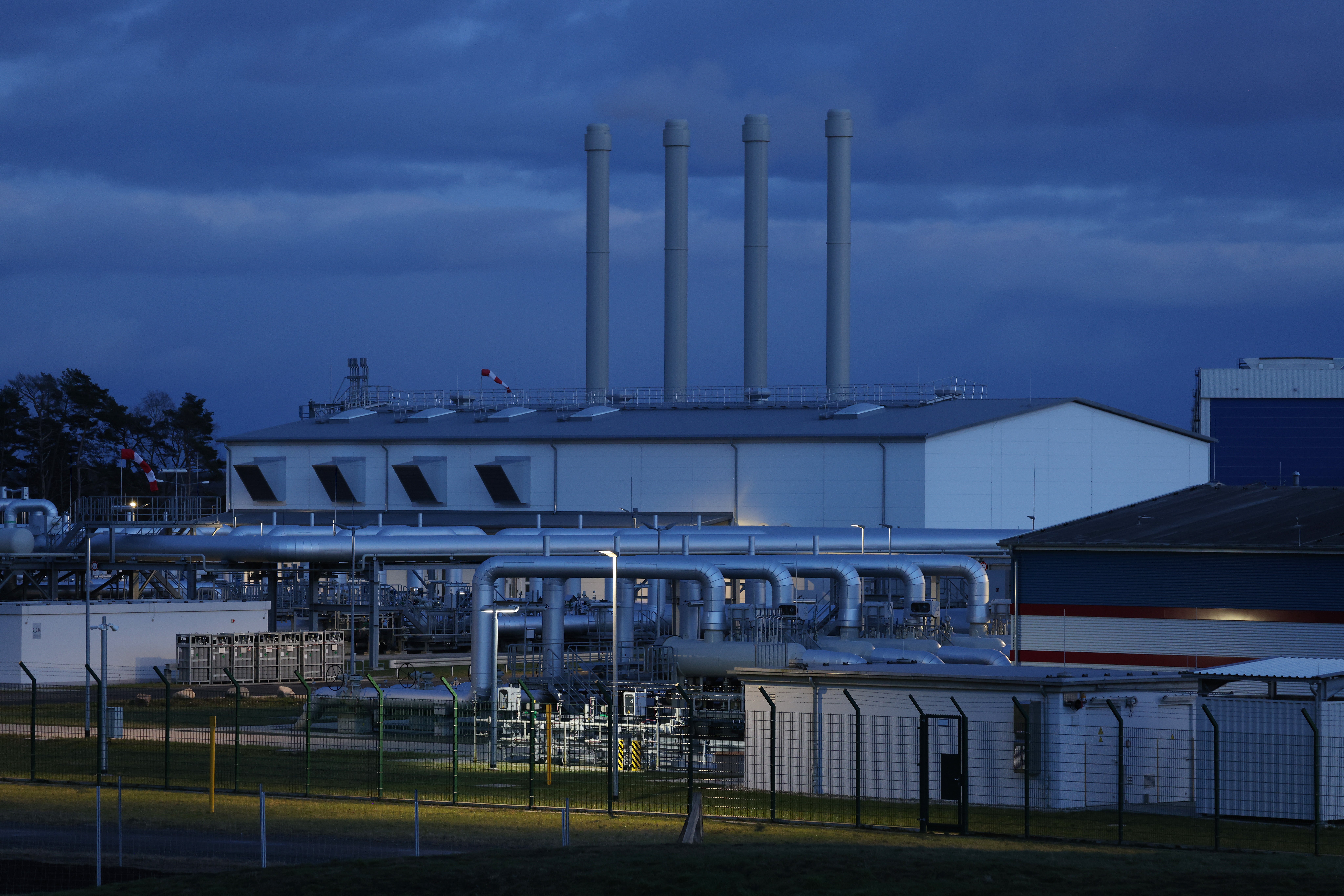Will Europe have to ration energy if Russia cuts off gas supplies?
Supplies to five European countries were reduced last week and there are fears Moscow could go further, writes Ben Chapman


Vladimir Putin has begun reducing gas supplies to Europe, increasing the pressure on energy supplies.
European leaders and businesses fear that Russia will continue to exert its power over the continent as winter approaches, causing stocks to run low.
So are we in for a winter of blackouts and energy rationing?
What has happened?
Last week Russia reduced gas supplies to five EU countries, including Germany. Gazprom, Russia’s state-owned energy company, cut supplies to Germany by 60 per cent and gas flowing from Russia to Italy fell by half. Austria, the Czech Republic and Slovakia have also seen supply cuts.
Supplies to Poland, Bulgaria, Denmark, Finland and France had already been cut.
The latest round of reductions is seen as more significant because Germany in particular is heavily reliant on Russian gas to power homes and manufacturing.
Could Europe’s gas run out?
Russia supplies 40 per cent of Europe’s gas, so a complete shut-off would mean that countries would not be able to access all the fuel they need.
Europe is urgently seeking to fill up its storage to ensure that it has enough to get through the cold months when demand is higher.
“We are in a gas crisis,” said Robert Habeck, Germany’s economy minister. “From now on, gas is a scarce commodity.
“Gas use must be further reduced so that more gas can go into storage. Otherwise it’s going to be tight in winter,” he said.
Berlin does not yet believe that it will have to ration gas, but it is preparing for “stage three” of its gas plan. However, that emergency stage cannot be ruled out, Habeck said.
Germany’s gas storage facilities are currently 58 per cent full, which is a higher level than at the same point last year. But if Russia continues to limit supplies, Germany will not reach a terget level of 90 per cent by December unless other sources are found.
The EU has a target of 80 per cent by 1 November, but some experts do not think it will be met.
The Bruegel think tank in Brussels warned in a report that “Bulgaria, Hungary and Romania will not meet the EU 80 per cent target if they continue at the current speed”, while “Germany, Austria and Slovakia will find it very difficult to fill their storage facilities if gas flows from Russia are stopped”.
Gas is a major source of revenue for the Kremlin, but Mr Putin is able to sharply reduce exports because he is currently swimming in billions of dollars of cash thanks to Russia’s other main export, oil.
Prices have soared since the invasion of Ukraine began, handing Russia a windfall.
What can be done?
Liquefied natural gas shipped in from countries such as the US and Qatar is an option.
However, terminals in the major LNG-exporting countries are already running at full capacity.
Europe is competing with buyers in Asia for limited supplies.
There are also efforts to pump more pipeline gas from Norway and Azerbaijan.
Germany and the Netherlands are both looking to increase the output of coal power stations in a bid to keep the lights on.
If rationing were to happen, industries would be affected first, with households being spared until absolutely necessary.
It’s currently seen as more likely that rationing will be avoided. Tight supplies will mean even higher prices, further stretching houshold budgets and piling more financial pressure on businesses throughout Europe.






Join our commenting forum
Join thought-provoking conversations, follow other Independent readers and see their replies
Comments